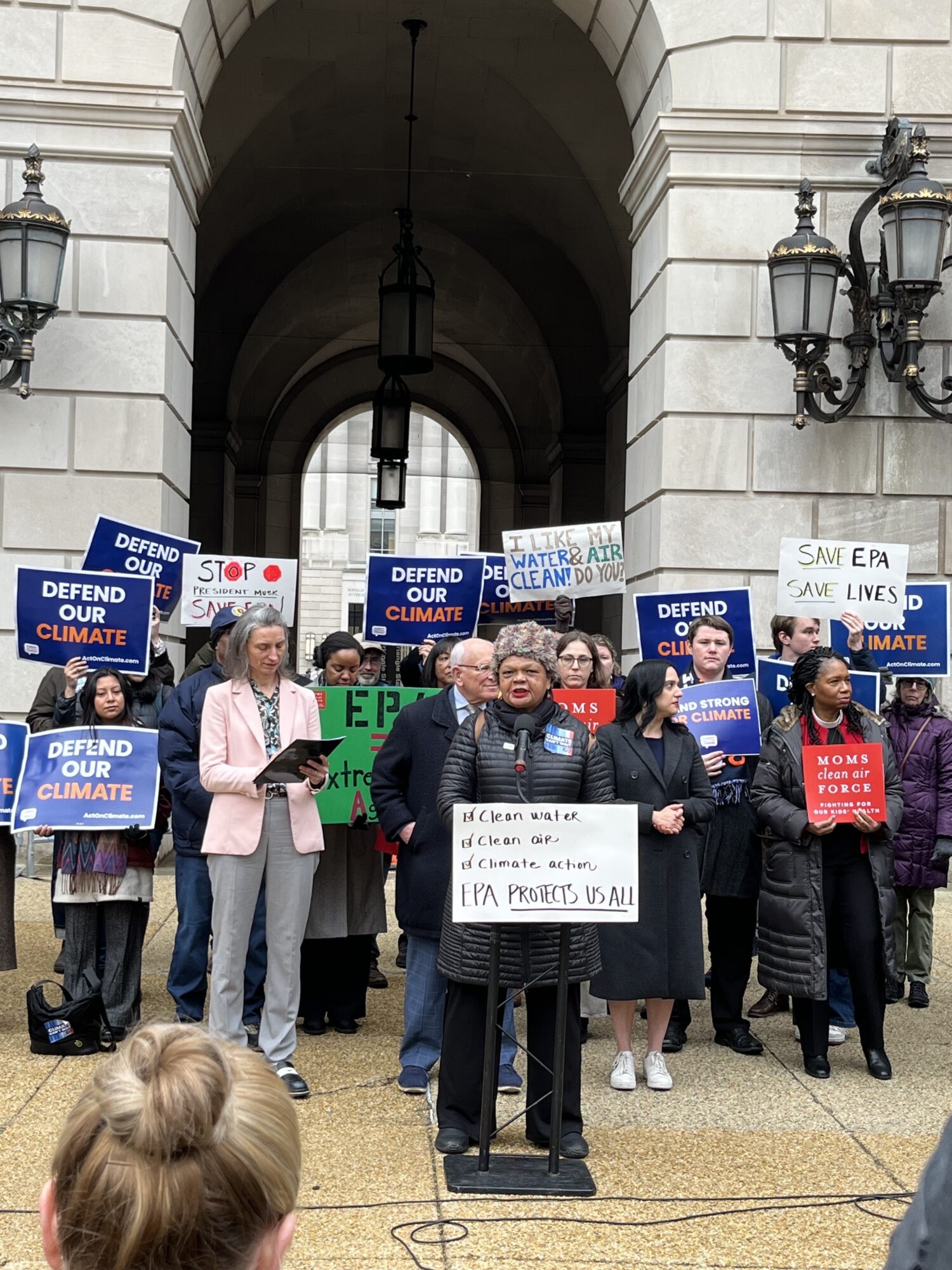
FEDERAL IMPACTS
2025 – Keeping LIHEAP Alive with a $20-million Increase
The Low Income Home Energy Assistance Program (LIHEAP) is a federally-funded and state implemented program designed to assist eligible low-income households with their heating and cooling costs, energy crisis assistance, weatherization, and energy-related home repairs. Despite the Trump administration’s attempt to defund the entire program, which has been chronically underfunded despite the fact that it can and does save lives, our advocacy helped secure a $20 million increase in LIHEAP funding for fiscal year 2026 over what was appropriated for fiscal year 2025.
2024 – Pausing LNG Export Infrastructure
While the Biden administration did a lot to advance environmental and climate justice, we have been pushing back hard (and were among the first to do so) on its support for liquified natural gas (LNG) and the permitting of infrastructure – pipelines, refineries, and ports – being built to export this fossil fuel. Not only does such infrastructure encourage the continued use of fossil fuels, but most of these projects are being built in frontline communities (primarily in the Gulf Coast) already devastated by the environmental impacts of petroleum, natural gas, and petrochemical facilities.
We are happy to report that our advocacy convinced the administration to pause the permitting of pending and future LNG infrastructure. During this pause, the Department of Energy reviewed these projects to gauge their economic and environmental impact on local communities. President Biden said in a statement that “during this period, we will take a hard look at the impacts of LNG exports on energy costs, America’s energy security, and our environment,” adding that he “sees the climate crisis for what it is: the existential threat of our time.”
2024 – Strengthening Federal Rules for Cleaner Air
As a convener of Clean Air for the Long Haul, a nationwide coalition of environmental justice groups working together to win major federal emissions reductions in the power and transportation sectors, we have been advocating for regulatory protections and improvements to air quality in our communities. Earlier that year, the U.S. Supreme Court upheld the U.S. Environmental Protection Agency’s regulations lowering air pollution and greenhouse gas emissions from the power sector. These included rules to curb methane emissions from oil and gas operations, mercury and other toxic air pollutants from coal-fired power plants, and greenhouse gases from existing coal and new gas power plants. We had successfully advocated to strengthen these rules, especially the methane and mercury and air toxic standards. Unfortunately, the Trump administration is seeking to undermine these rules and reduce protections in both the power and transportation sectors.
2020 – NEPA Defense
We actively fought to protect the National Environmental Policy Act (NEPA), bedrock environmental legislation designed to give communities a seat at the planning table for federal projects that impact their community, from efforts by the Trump administration to weaken and undermine it.
2020 – Advocating for Environmental Justice Bills
We supported key environmental justice legislation, including the Environmental Justice for All Act, the Climate Equity Act, the Environmental Justice Legacy Pollution Act, and the Safe Cosmetics & Personal Care Act.
2020 – Green Jobs Report
In partnership with the Environmental Justice Leadership Forum, we produced the Green Jobs Report, outlining how a Just Transition framework can build a renewable energy workforce in an equitable way.
2020 – Presidential Candidate Briefings
We provide counsel to a number of presidential candidates on their environmental and climate platforms, and have been providing regular counsel to the President-Elect’s transition team.
GLOBAL IMPACTS
2025 – Phasing Out Mercury from Dental Amalgam
Having successfully advocated for the adoption of an amendment to the treaty to phase-out mercury from cosmetics at the United Nations’ COP5 Minamata Convention on Mercury in 2024, we attend COP6 in 2025 to help phase out mercury-containing dental amalgam by 2034. Dental amalgam is a cavity filling containing 50-percent mercury and is primarily used in low-income communities and communities of color. The Convention also strengthened the ban on manufacturing, importing, and exporting of mercury-added cosmetics, calling on the Minamata Secretariat to identify countries with challenges establishing and enforcing the bans and assist in bridging these gaps. It also loops in the World Customs Organization, Interpol, and other international organizations to investigate the illegal trade of these products.
2024 – Phasing Out Mercury from Cosmetics
At the Minamata Convention on Mercury, hosted by the United Nations, we helped successfully advocate for the adoption of an amendment to the treaty treaty that will phase-out mercury from cosmetics by 2025. As you may recall, we successfully banned mercury – a dangerous neurotoxin found in many skin lighteners – from cosmetics in New York State, but this global ban will help reduce the prevalence of cosmetics containing mercury that still find their way onto our store shelves from overseas as well as being sold online. You can read the press release here. And you can also read the report on the online marketing of skin lighteners here.
2022 – Climate Justice Pavilion at COP27
WE ACT for Environmental Justice, the Deep South Center for Environmental Justice, and the Bullard Center for Environmental and Climate Justice at Texas Southern University hosted the first-ever Climate Justice Pavilion inside the Blue Zone at COP27, the 2022 United Nations Climate Change Conference, in Sharm El-Sheikh, Egypt, November 6-18, 2022. The pavilion brought together representatives from the Global South, the U.S. Environmental Justice Movement, and Indigenous peoples to spotlight the voices of communities disproportionately impacted by climate change.